- Home >
- Animal Parade Caf - Lib Herbal Tea (Original) - 20 Tea Bags - Id Foods
Caf - Lib Herbal Tea (Original) - 20 Tea Bags - Id Foods
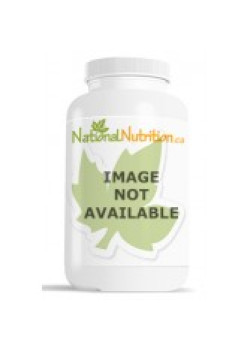
We're sorry, we no longer carry this item.
Check These out
Suggested, Similar, & Related Products:
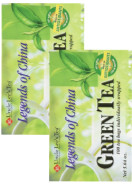
Sale: $9.99
Reg.: $12.99 (Save $3.00)
(Click Add to Select Bonus)

Sale: $6.99
Reg.: $8.99 (Save $2.00)
(Click Add to Select Bonus)
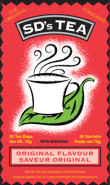
Sale: $8.99
Reg.: $11.99 (Save $3.00)

Sale: $6.99
Reg.: $8.99 (Save $2.00)
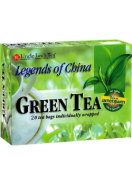
Sale: $3.49
Reg.: $4.99 (Save $1.50)

Sale: $29.77
Reg.: $34.99 (Save $5.22)

Sale: $5.49
Reg.: $7.99 (Save $2.50)
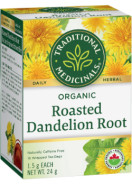
Sale: $5.99
Reg.: $6.99 (Save $1.00)
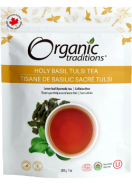
Sale: $13.59
Reg.: $14.99 (Save $1.40)
Or, Shop our Latest Deals:
Shop Now >Roasted chicory root
Hawthorn Berries
Hibiscus flowers
Format
 Tea Bags
Tea Bags
20 Bags
Dosage
Boil water to desired temperature and pour over a tea bag. Allow to steep for 1 to 2 minutes and enjoy.
Important Information
May contain barley and rye gluten.
- Caffeine free ... naturally satisfying !
- 100% natural, without caffeine, sugar, chemicals or preservatives
- Caf-Lib offers a wide range of flavourful products to satisfy every taste
- Caffeine-free Herbal Teas, Original and Earl Grey
Related Videos
No Related VideosRelated Articles
Articles by a naturopathic doctor.
We used to carry Animal Parade and its associated products, but we no longer offer them. We are always looking for new and exciting products to bring to our customers. In the list below, you can view products from Animal Parade that we no longer carry and check out alternative products that may meet your requirements.
Asthma
Traditionally, a cup of coffee was used to help treat mild asthma attacks in children. Due to its ability to relax smooth muscle, caffeine can act as a bronchodilator in people with asthma. Caffeine is very similar in structure to theophylline, another methylxanthine commonly used to treat asthma. Recent research has found that caffeine can be used in place of theophylline when necessary for bronchodilation in asthmatics.
Energy Metabolism
Professional athletes will often use small to moderate doses of caffeine to help improve their athletic performance. It helps to mobilize fat from the muscle and increase blood epinephrine levels. These effects allow the muscles to mobilize and use fat for energy, which spares muscle glycogen. This allows for better results with endurance exercise, by giving longer acting energy. The dosing for this effect is very specific, as excess can quickly become detrimental for athletic performance, by throwing off co-ordination and balance. The metabolic effects of caffeine may also allow it to help prevent the development of Type II Diabetes. Unfortunately, once diabetes is already present, caffeine's effects are actually detrimental and can worsen blood sugar control.
Anti-Cancer and Protective Effects
There are a number of preliminary studies that show caffeine as having a slight anti-cancer effect. This has been seen in a number of different cancer types including: melanoma, colorectal, breast, and endometrial cancer cell lines in a test tube. Far more research is required before we can draw conclusions in this area. For more information, please see our Cancer article. Interestingly, caffeine intake has been associated with a reduced risk of developing Parkinson's Disease, probably because of its stimulatory effects altering dopamine secretion.
Caffeine and Constipation
Because of its diuretic effects, caffeine can cause dehydration, a condition that can greatly worsen constipation over time. This seems counter-intuitive to the many people who drink coffee to promote a bowel movement in the morning. This direct effect is likely due to the relaxation of smooth muscle caused by caffeine. In general, it is a good idea to find other ways to promote bowel movements, rather than relying on a stimulant like caffeine. For more information on treatment ideas, please see our Constipation article.
Toxicity
The side effects of caffeine exposure depend on the dose. At typical doses, it can cause: insomnia, nervousness, restlessness, gastritis, nausea, increased heart rate, high blood pressure, and increased urination. Often people will complain of muscle tremors known as the "caffeine jitters" after ingesting excess caffeine. Larger doses can cause: headache, anxiety, agitation, ringing in the ears, stomach cramps, sensory disturbances, vomiting, rapid breathing, tremors, delirium, irregular heartbeat, and even convulsions. Fatal overdoses by ingestion are rare because the irritation of the gastric lining caused by caffeine generally results in vomiting of excess amounts. This irritation is also why caffeine intake is associated with an increased risk of developing Ulcers. Prolonged use of caffeine has also been shown to be associated with increased risk of developing several health conditions such as High Blood Pressure, and Cardiovascular disease.
Addiction, Tolerance, and Withdrawal
With daily use, caffeine can cause a physical dependency and addiction. The stimulatory effects of caffeine are also reduced over time with constant use, and tolerance develops. Tolerance is a condition in which larger doses are required to have the desired effect. Suddenly stopping caffeine intake can often cause symptoms of withdrawal. Nicotine can increase the breakdown of caffeine in the bloodstream, and thus reduce its stimulatory effects. This may be why cigarette smokers often drink greater amounts of caffeinated beverages. Caffeine withdrawal symptoms include: headache, irritability, drowsiness, insomnia, poor concentration, stomach pain, and joint aches.
Decaffeination
In order to produce beverages like coffee and tea without the caffeine content, manufacturers came up with ways to remove the caffeine. Originally, this was done using solvents like: benzene, chloroform, trichloroethylene, and dichloromethane. Due to the toxic nature of these chemicals and their environmental impact, other methods have since been created. The two most common, and more natural means of decaffeinating are water extraction and supercritical carbon dioxide extraction. In both cases the caffeine is extracted, leaving the coffee bean intact. The caffeine that is removed is then used in the manufacturing of caffeinated energy drinks and carbonated beverages.
- Reviews
- POST A NEW REVIEW
Tell everyone what you think about this item!















